Sometimes we think that we should never have doubts: we would like to be strong, sure of our certainties and face life knowing exactly what we like and what we do not like, what things we are for and what we are against.
We tend – except when their opinions are decidedly contrary to ours – to admire those who know exactly what they want, without nuance or hesitation, and always go straight towards it.
But when we stop for a moment in front of a problem and breathe deeply without the anxiety of showing ourselves how good we are at solving it in an instant, we rediscover the value of the doubt. Doubt is a topic very dear to Falco Tarassaco, a central theme in Damanhurian philosophy.
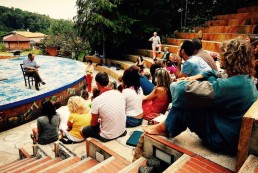
Constructive doubt
In fact, Damanhur speaks of constructive doubt. As reported in the book What Damanhurians believe in, “the doubt, in the Damanhurian vision, it is not the element that puts distance between us and things, slowing us down and causing us to be cautious, but on the contrary it is the intelligent procedure to confront each theme, every situation, every ideal, to establish our relationship with them”.
Doubt does not mean not believing in things, keeping one foot in a shoe and the other in a slipper, never choosing or changing your mind often. Rather, it means engaging consciously and solidly choosing what to do and what to believe in, and then expressing one’s own determination.
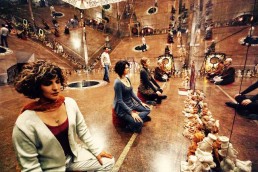
Give solidity to thoughts
Sometimes beautiful words, deep sensations or refined seductions strike us and lead us to say: “Yes, this interests me very much.” “This is my path.” “I deeply believe in this person.”
Doubt is that element that leads us to explore these thoughts, to ask ourselves why we feel this way, to verify whether what we feel is the enthusiasm of the moment or a sentiment that has also been elaborated by our wisdom.
Exercising a moment of doubt really means giving lasting strength to our thoughts and our choices.
When we come into contact with an idea – spiritual, political, artistic, and so on – that we like deeply, before abandoning it, it is good to exercise doubt: to ask ourselves what it has to do with us, how does it affect us, what exactly is it? What are it’s strengths and weaknesses? In this way, we can decide that the idea is ours too. Paradoxically, otherwise, she will choose that we are “hers”. Until we go into crisis.
Let us ask ourselves the same questions even if we come into contact with an idea that we do not like at all; if in the end the idea will still remain foreign to us, we will be enriched by the reflections we have made and will not simply be treated as waste.
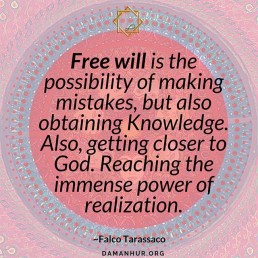
Do not stop at the evidence
Constructive doubt is an element of flexibility and solidity together. The speed in your evaluation is important so that time is not wasted. Doubt must not become a reason for being slow and lazy, but it must be a way to combine our instinct with our intelligence.
The ideal companion is a sense of responsibility: when I decide something, after having analyzed it through doubt, I do not put it into question but I take responsibility for the choice I have made and go forward. The doubt of which Falco Tarassaco speaks is not a way to “wash his hands”, as did Pontius Pilate, not knowing whether to save Jesus Christ or the Barabbas thief, but it is a way to establish his position in every situation. Evaluating without superstition, without superficiality or regrets, but with the serene awareness of having evaluated both with the heart and with the mind, both with reason and with feeling.
You can also try to exercise creative doubt: do not immediately answer yes or no to things, even when choosing is easy. Think about it, reflect, do not stop at the evidence and then make your choice. You’ll see, it’s an interesting exercise!
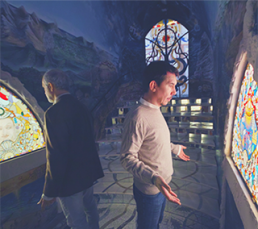
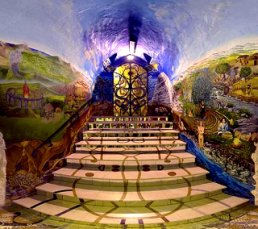








Hou can use subtitling in the video Berit
Yes Lucy, all videos have subtitles in English. 🙂
Wishing you a beautiful Nativity!
What does Falco Tarrasco mean by “God” ?
Dear Berit, great to hear from you! Falco described the concept of “God” on many different levels. Here is one video during a meeting with guests where he respond to that exact question, so it’s like he responds directly to you 🙂
link to the video > https://www.youtube.com/watch?v=AaTxSqkKRdY
We wish you a beautiful Nativity!
Thank You so much. I also whish You a happy nativity!
I can not understand the italian language. What can i do?
Did you refer to problems of understanding during a possible visit? In Damanhur we have people speaking all possible languages, from English, to Spanish, German, Croatian and many more, including the language of the heart! So you will not have any problems 🙂 ????✨????